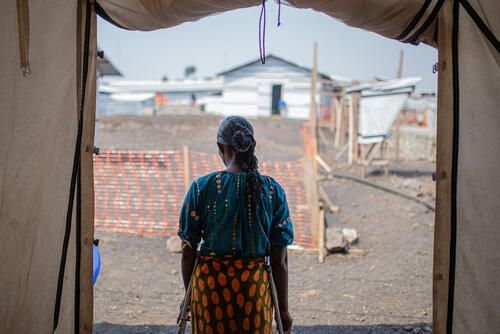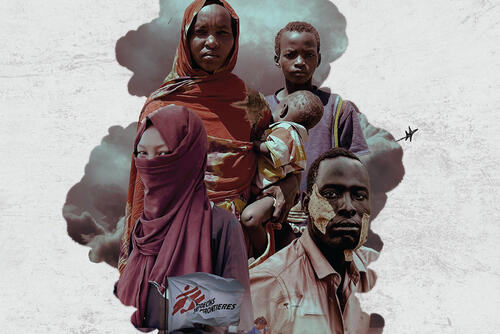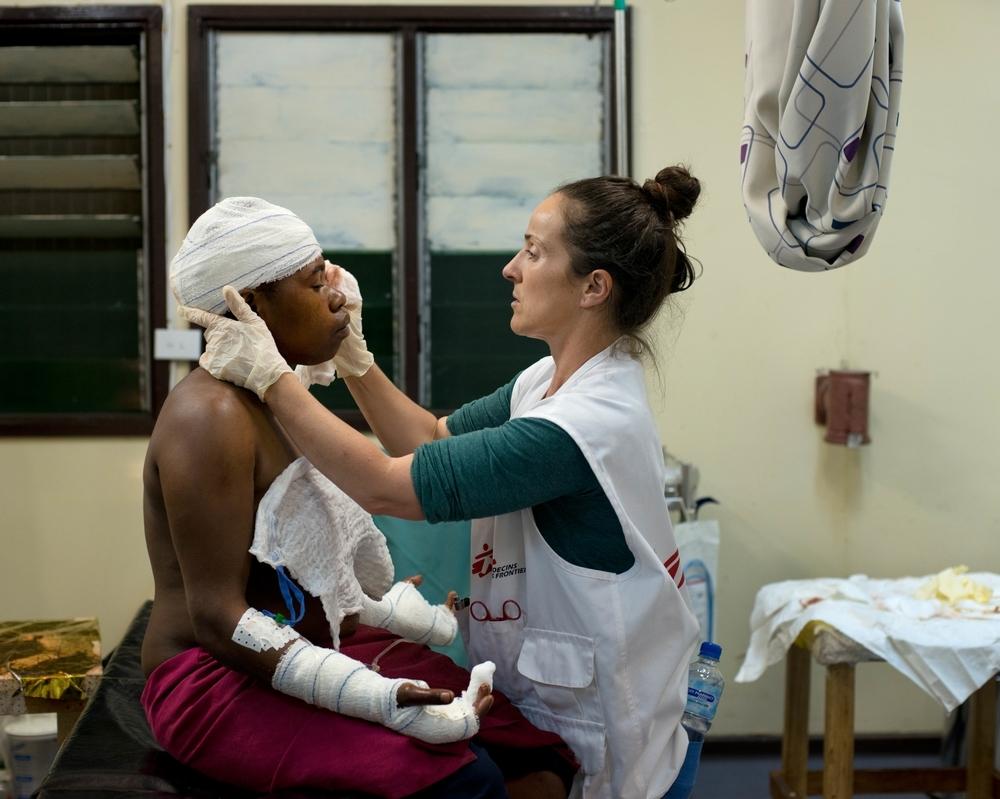Sexual and gender-based violence
Sexual and gender-based violence (SGBV) is a medical emergency.
We strive to make comprehensive healthcare available to survivors of sexual violence, regardless of their age or gender, in all of our projects.
Sexual violence shatters the lives of millions across the globe. It can occur in any society at any time but often increases in unstable situations, such as armed conflicts.
Sexual violence is complex and stigmatising, has long-lasting consequences, and can result in physical and psychological health risks.
In 2023, MSF provided medical care to 62,200 survivors of sexual violence – 22,300 more than in 2022.
What is sexual and gender-based violence?
SGBV encompasses many different acts of violence against women, children and men, ranging from rape to genital mutilation.
In conflict, rape is often used as a weapon or as a reward for soldiers. Rape and other forms of sexual abuse are also used as a means of torture or, in some cases, as a strategy to spread HIV/AIDS within a community.

Help us prepare for the next emergency
Medical consequences
SGBV can have a wide variety of medical consequences affecting physical and reproductive health.
Physical injuries can range from stab wounds, fractures and bleeding to vaginal fistulas.
People who are sexually abused are also more susceptible to sexually transmitted infections (STIs), such as HIV. STIs are more likely to be transmitted by forced sex as vaginal or anal tears provide an entry for the virus.
Another medical consequence can be unintended pregnancies. According to the World Health Organization, women who have suffered sexual violence are twice as likely to have an abortion. Abortions performed under unsafe conditions often have further consequences for reproductive health.
Psychological consequences
Survivors of sexual violence often suffer from severe and varied psychological effects.
It is common for a person to feel guilty and to think the incident could have been avoided. A loss of control and trust can also affect a survivor’s ability to form relationships with others.
These feelings are often accompanied by clinical conditions such as depression, post-traumatic stress disorder and anxiety.
The mental health of someone who has suffered sexual violence can be further deteriorated by stigmatisation. In some cultures, survivors are rejected by partners and family members, with some communities even humiliating people who have been raped.
Spotlight: South Africa
Sexual violence: News and stories



